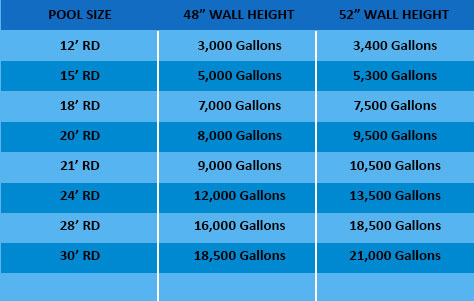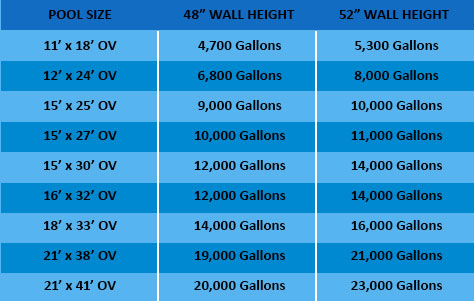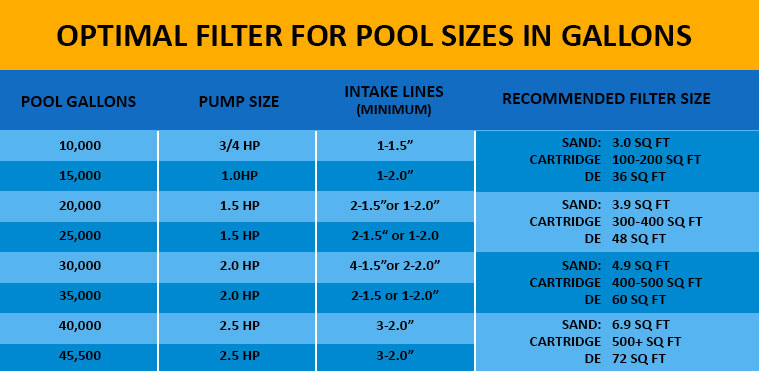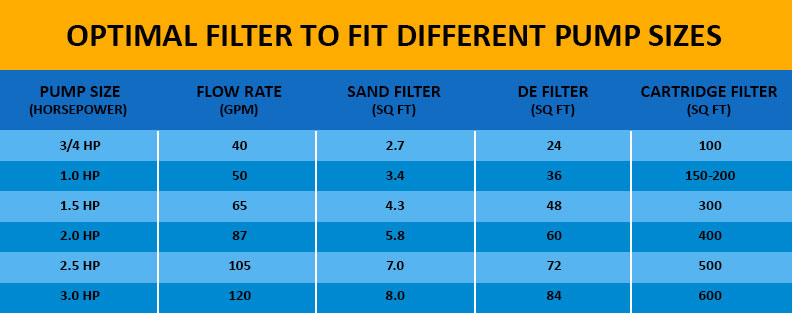For Sand Filters: To clean your sand filter you will need to start by backwashing with a
backwash hose rolled completely out in order to carry the expelled water from your pool into the desired area. This process will typically take a few minutes.
You should be backwashing your filter when the pressure gauge rises over 8 to 10 psi over its starting point. Additionally, it’s recommended to backwash after heavy rains, treating algae and to help clear cloudy water.
For Cartridge Filters: You should
clean your filter a few times over the course of the summer and can accomplish it with your garden hose and a basic attachment.
Spray your cartridge with a cleaner — such as
Power Blue Cartridge and D.E. Swimming Pool Filter Cleaner — and let it sit for about 10 minutes. Then, you’ll use your hose and spray nozzle to spray each pleat, running down the length of the filter at an angle. Once you finish, you’ll want to flip the cartridge over and do it again. Make sure you do it at an angle to avoid pushing debris further into the filter.
There are numerous cleaners to clean your filter, just be sure to properly follow the instructions associated with each cleaner since some of them require the filter to soak overnight. We also sell several specialized hose attachments to make cleaning easier.
For more information on cleaning your cartridge, check out our blog,
Cleaning Your Pool Cartridge Filter.
For D.E. Filters: It’s best to clean your D.E. filter every month or whenever the pressure gauge rises 8 to 10 psi over its starting point.
Start by backwashing your filter. Once complete, clean the grids within, shaking off the
D.E. powder. You’ll also want to clean off the inside of the tank. After you reassemble the tank, add new D.E. powder.
[Shop All Filters & Filter Supplies]

 YOU ASKED
YOU ASKED How big of a filter do I need?
[open]
How big of a filter do I need?
[open]




 What would happen if I got a filter too small for my pool?
[open]
What would happen if I got a filter too small for my pool?
[open]

 Is there a way to make my sand filter more effective?
[open]
Is there a way to make my sand filter more effective?
[open]

 How do I clean my filter?
[open]
How do I clean my filter?
[open]

 Why is D.E. powder harmful?
[open]
Why is D.E. powder harmful?
[open]

 FILTERS
FILTERS
 Sand Filters
[open]
Sand Filters
[open]

 Cartridge Filters
[open]
Cartridge Filters
[open]

 Diatomaceous Earth (D.E.) Filters
[open]
Diatomaceous Earth (D.E.) Filters
[open]

 Pump and Pool Size
[open]
Pump and Pool Size
[open]

 [Shop All Pumps]
[Shop All Pumps]
 WE RECOMMEND FILTERS
WE RECOMMEND FILTERS